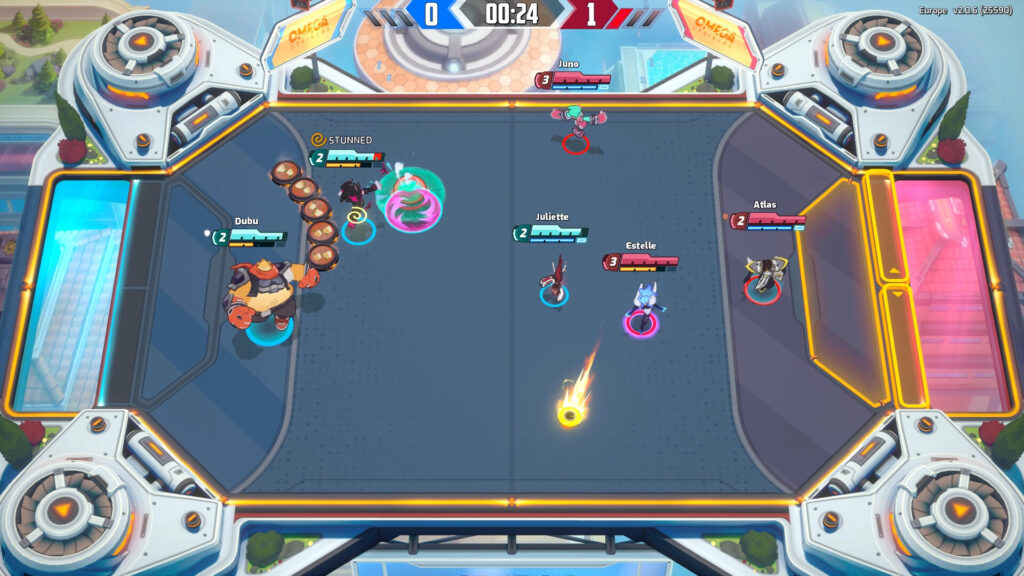UPDATE TO THIS POST: This FTC rule is not currently enforceable. A district court issued an order stopping the FTC’s enforcement of this rule on August 20, 2024. For now, this is not the rule, but the growing trend is against noncompete agreements.
The Federal Trade Commission (FTC) has recently issued a new major ruling. Their new rule will prohibit most types of noncompete agreements.
This is a big deal. I fully expect that this will result in more independant games from new studios that take advantage of their experience working at AAA studios, such as former Riot Games employees going on to form Odyssey Interactive, creators of Omega Strikers, and Theorycraft Games, creators of the upcoming Project Loki. Employees having the flexibility to use their experience and talents in new endeavors after they leave their employers is great for the industry as a whole.

Let’s take a look at the new ruling, what’s changed, why, what it means for workers and employers, and how you can still protect your intellectual property interests.
What is a Noncompete Agreement?
It’s important to understand what a noncompete agreement is. A noncompete agreement is a legal agreement (usually as a clause in a larger contract) that specifies that the employee must not enter into competition with their employer after the employment period is over. This lasts for a specified period of time or over a specified geographic area, but they can also define exactly what constitutes competition and what the potential for damages is. Courts have ruled on the reasonableness of specific noncompetes based on those limitations, but that was up to individual courts to determine, and somebody under a noncompete often had the burden of bringing that to a court.
Usually, noncompete clauses are used to protect an employer’s proprietary interests or other investments when training employees. An employer ideally wants to mitigate the risks of an employee working for their competition or forming their own company or studio with the talents and training they provide. It effectively gives employers a monopoly over a single worker’s labor or talents. A noncompete is often a way to do this, though they can create problems for workers who leave and are restricted in the types of work they can do long after employment has ended.
What is the FTC’s New Rule on Noncompete Agreements?
The FTC’s new rule would render these noncompete agreements null and void. This straightforward rule would apply to all employees in every industry, except for executives who make over $151,000. Any existing agreements that a studio or other employer is using will be void.
Up until this point, the legal status of noncompete agreements has been a question of state jurisdiction. North Dakota and Oklahoma already didn’t enforce noncompete agreements, California made them unlawful at the start of 2024. Other states, such as Hawaii, limited their use to the technology industry. However, the FTC is a federal agency. As such, their rule prohibiting noncompete agreements would apply to all states.
The FTC’s Justification
Why is the FTC banning noncompete agreements? Less than half of all workers in the country under a noncompete agreement actually have trade secrets from their employers. If a primary goal of noncompete agreements is to protect trade secrets, then this means that half of these agreements are simply not doing that at all. The FTC states that this means noncompete clauses “keep wages low, suppress new ideas, and rob the American economy of dynamism” and that this rule will “ensure Americans have the freedom to pursue a new job, start a new business, or bring a new idea to market.”
When people are under a noncompete agreement, they’re often unable to work and make use of their relevant talents. If an artist leaves a studio, they often can’t work for another one, making them unable to change jobs. This leads to stagnant wages and reduced competition in the labor market. Even when they do leave their employer, they often have to leave their specific industry in order to make use of their skills elsewhere. This is not good for the games industry, or any other industry that relies on talented workers. It limits worker’s ability to change jobs and can limit an industry’s potential pool of talent.
When Does the FTC’s Ban on Noncompete Agreements Go Into Effect?
The FTC’s new rule is set to go into effect 120 days after its publication in the Federal Register, which would be approximately September 2024. At that time, all new and existing noncompete agreements will be unenforceable.
That said, the ban is facing some legal challenges by the U.S. Chamber of Commerce, a business association advocacy group. They assert that companies will “face substantial legal costs as they are forced to resort to other tools to attempt to protect their investments” and that “the economy […] will suffer as start-ups and small businesses are unable to prevent dominant firms from hiring their best employees and gaining access to their confidential information.” Whether these challenges will prevent the rule from going into effect remains to be seen.
Protecting Trade Secrets
With this ban in mind, what can you do to protect your intellectual property? What are these “other tools” the Chamber of Commerce is referring to? How can you make sure your employees and independent contractors don’t use your trade secrets?
Remember that trade secrets are still protectable, even without a noncompete agreement. They have to be protected by contract instead of by preventing workers from using them with another employer. Take time to review your contracts with a lawyer and make sure that you’re protected even without noncompete agreements. Of course, other types of intellectual property like copyright and patents will still be as effective as ever.
Nondisclosure agreements is often the better tool where noncompete agreements are being used currently. NDAs will still be allowed, though it will become a question for the courts to decide what is and is not a protectable secret. Expect to see business groups lobby to expand the definition of protectable trade secrets.
As for maintaining your employees and talent, I tend to think the best solution is to keep them happy where they are. Changing jobs is hard without other incentives, and for employers, particularly those working on a long-term project like a game, training new employees can slow an operation down considerably.
Conclusion
The FTC’s ban on noncompete agreements is a big deal for worker’s rights and ability to change jobs, but it can create some complications for studios and other businesses that rely on proprietary information and intellectual property. Make sure that you’re protected by legal mechanisms other than noncompete agreements.
